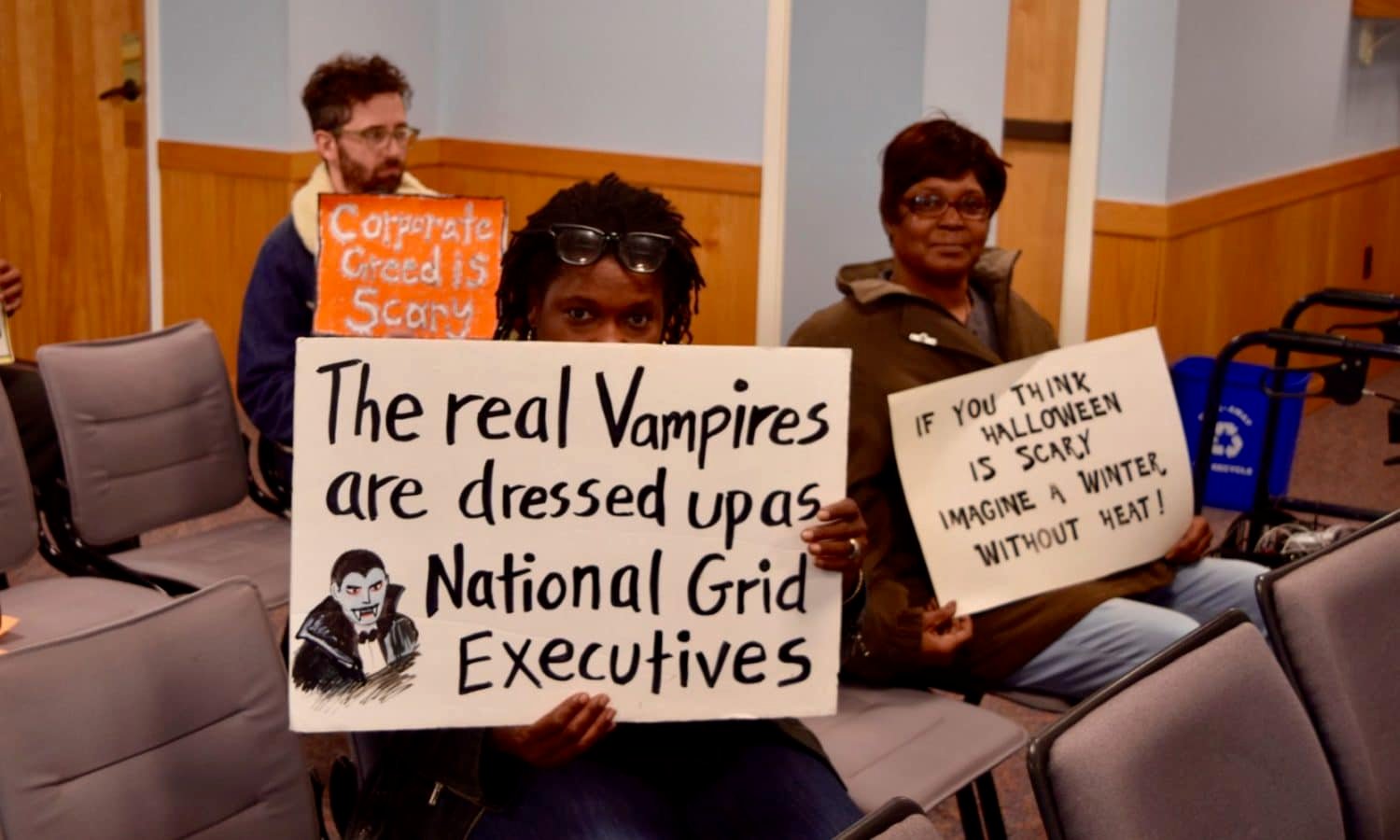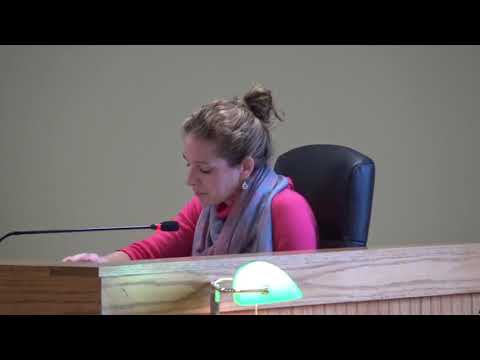Public Utility Commission delivers some relief for customers who have had their utilities shut off
The Rhode Island Public Utilities Commission (PUC) on Tuesday issued an order, effective immediately, making it easier for those who have had their gas or electric turned off due to nonpayment turned back on. Customers can now get their utilities back by paying ten percent of the money they owe and entering into a payment plan. Upon passage of the
October 31, 2018, 12:01 am
By Steve Ahlquist
The Rhode Island Public Utilities Commission (PUC) on Tuesday issued an order, effective immediately, making it easier for those who have had their gas or electric turned off due to nonpayment turned back on. Customers can now get their utilities back by paying ten percent of the money they owe and entering into a payment plan.
Upon passage of the utility relief, the crowd of over a dozen members and supporters of the George Wiley Center in attendance broke into applause. They had been holding Halloween themed signs encouraging the PUC to take a stand against National Grid and for people in need.
“It’s clear that this continues to be an issue of great importance that we take very seriously,” said PUC Commissioner Marion Gold. “Particularly for the folks who for a range of reasons struggle to keep themselves and their family warm and fed in the cold winter months.”
PUC Commissioner Abigail Anthony made for motions, seconded by Gold, which were approved by both commissioners present. PUC Chair Margaret Curran did not attend because she was not feeling well.
With the new measures approved, between the dates of October 31 and December 31, any residential customer whose utilities have been terminated by National Grid for nonpayment or who has a termination date scheduled will be entitled to have such service restored:
- Customers who owe under $1000 must pay ten percent down and agree to pay the balance within six months.
- Customers who owe between $1000 and $2500 must pay ten percent of the balance owed and agree to pay the remainder of the balance within 24 months.
- Customers who owe $2500 or more must pay ten percent of the balance owed and agree to pay the remainder of the balance within 36 months, unless the company chooses to extend the time period.
- Customers who are eligible for the arrears management plan may enroll between October 31 to December 31.
“The George Wiley Center provided qualitative evidence that reducing down payments improves access to heat, light, refrigeration, food preparation, warm water, communication, electronic medical devices and all other basic needs utility services provide,” said Anthony.
“I ran through the customer costs and benefits and societal costs and benefits. Participants benefit from all the items the George Wiley Center listed in their memo. Participants also benefit from non-energy impacts including improved comfort, improved safety, increased property durability, improved health, and the value of other improvements in the quality of life.
“Society may realize reduced greenhouse gas emissions and other criteria air pollutants,” continued Anthony, “because customers will continue to use grid-mix or gas supply instead of less efficient resources – for instance, using the oven to provide space heating or burning wood or delivered fuels.
“Society may benefit from increased economic activity resulting from reducing customers energy burden. Society may benefit from increased employment due to improved health, safety and quality of life of their employees. Society may benefit from lower social service costs, including lower Medicaid and Medicare costs. Society may benefit from other lowered health costs.
“While we don’t have a quantification of these costs and benefits, I would not be surprised if the customer and societal benefits exceed the cost,” concluded Anthony.
There was also attention paid to making sure that customers who need to enroll in programs that will deliver energy to them at special reduced rates.
Anthony’s motions seemed to cover all the requests made by the George Wiley Center in their filings.
However, the George Wiley Center is still seeking to re-establish PIPP (Percentage of Income Payment Plan) that would allow low-income households to pay a fixed percentage of their income for utility bills. The percentage depends on the Federal Poverty Level of that household. The program would be eligible to households that are at or below 150 percent federal poverty level who are enrolled in the Low Income Home Energy Assistance Program (LIHEAP).
The George Wiley Center informed me that there exists some shut-off protections during the winter moratorium period from November 1 to April 15, meaning certain categories of consumers are protected from utility termination, including elderly (all adults in household must be over 62), children under 2, disabled, medically vulnerable, unemployed (certified), and LIHEAP eligible households. Unfortunately, the protections do not require restoration of utility service in households that are currently shut off. That is why it is so urgent for people to get heat and electric turned back on now, before winter really sets in.
If you or anyone you know is facing shut-off, call the George Wiley Center at 401-728-5555 for practical support, utility rights information, and ways to fight together against shut-offs.
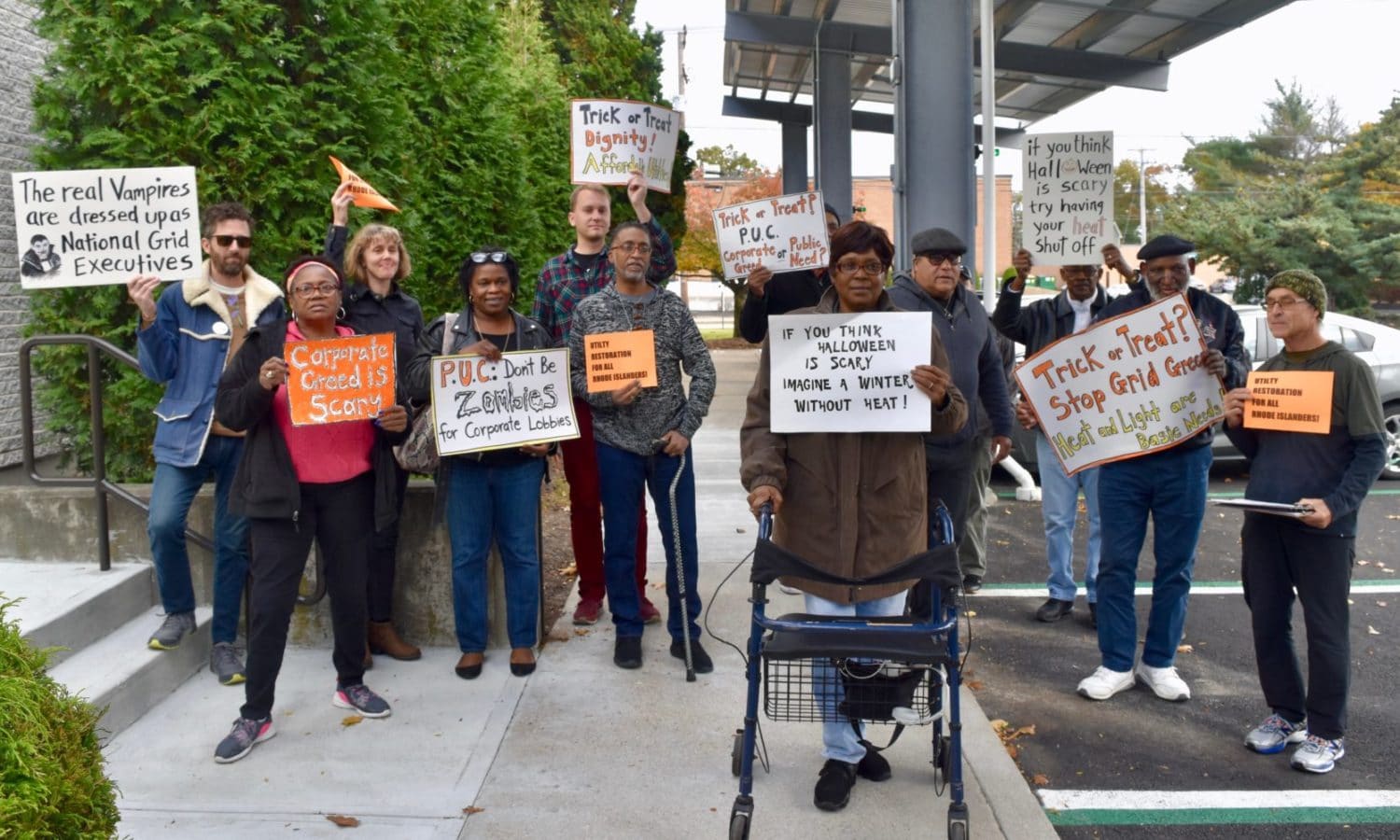
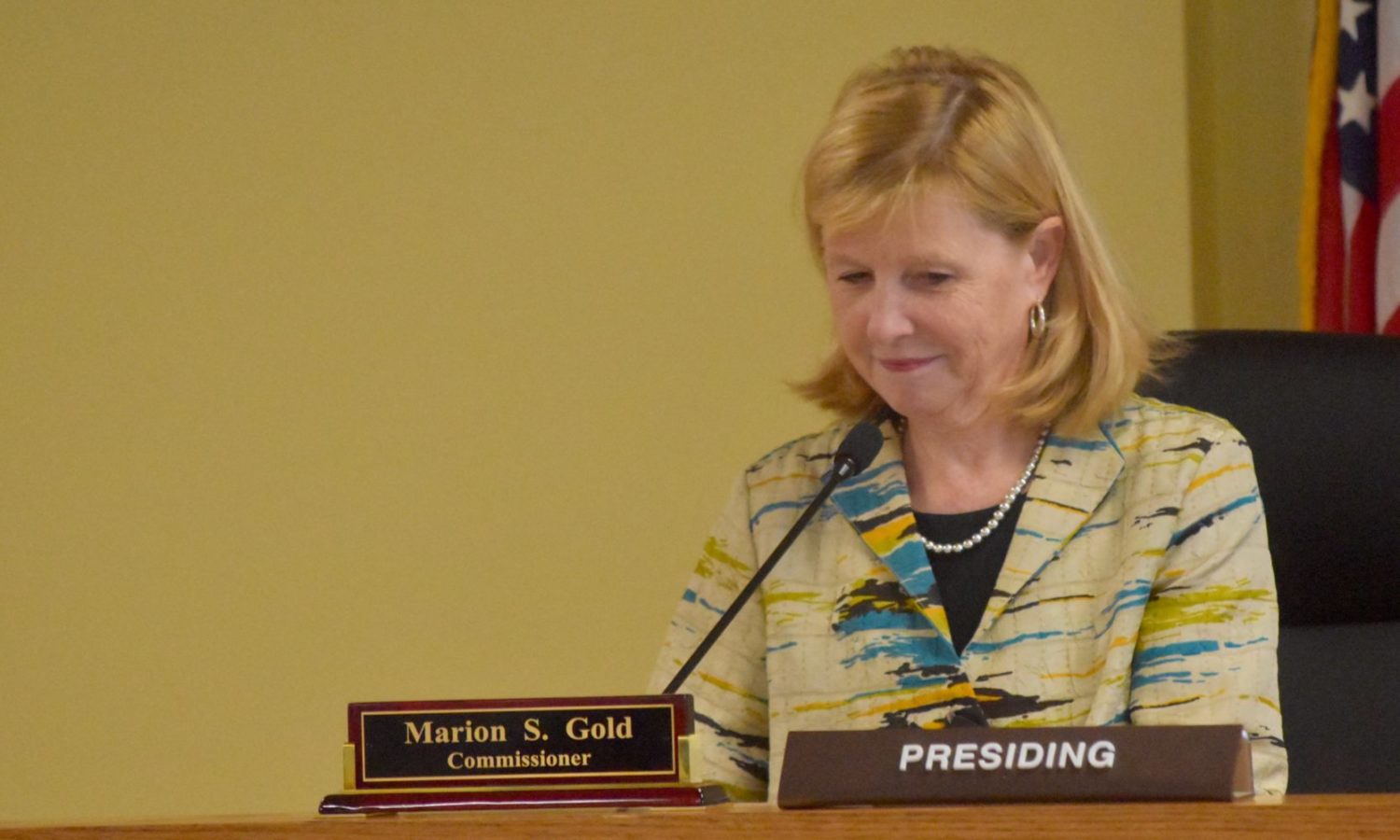
Marion Gold
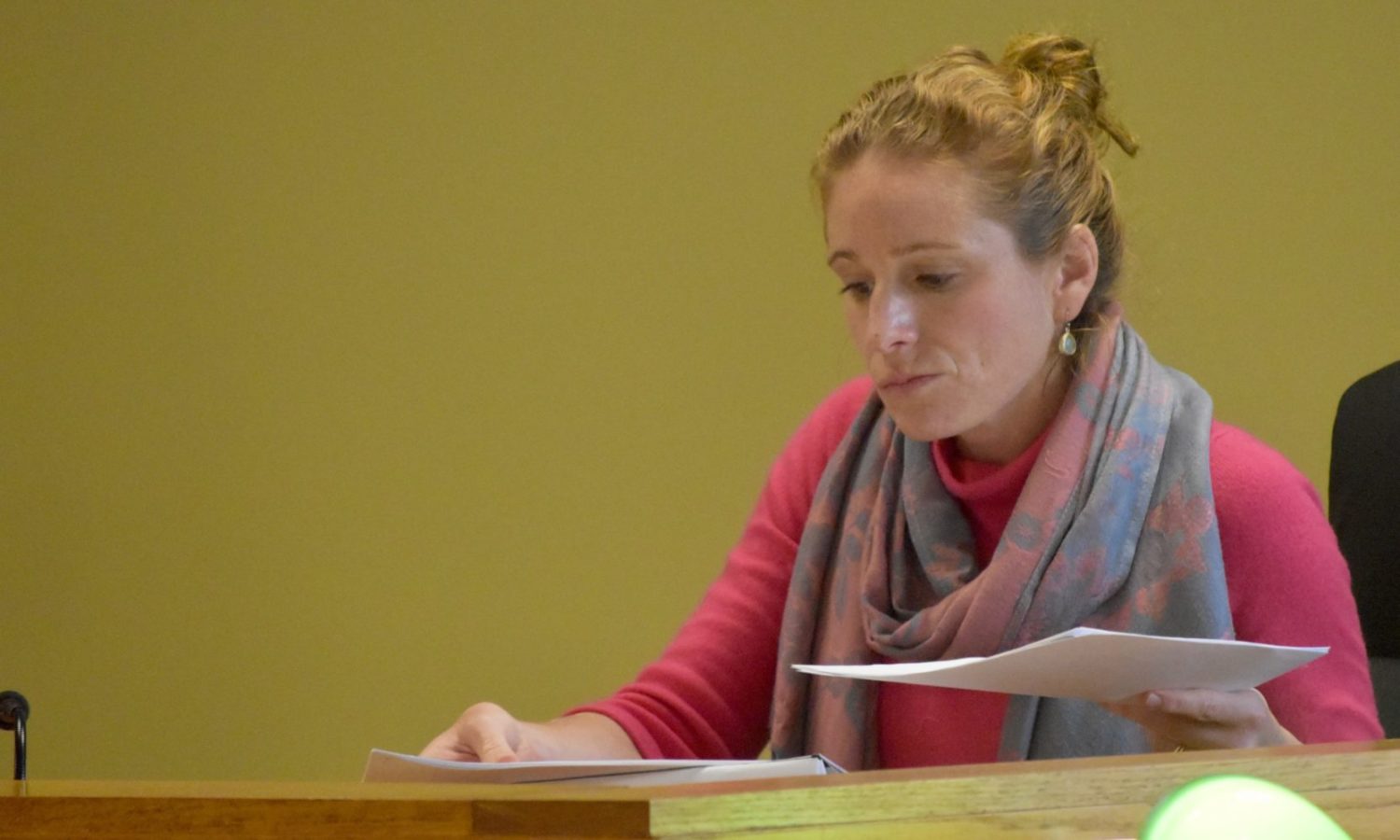
Abigail Anthony
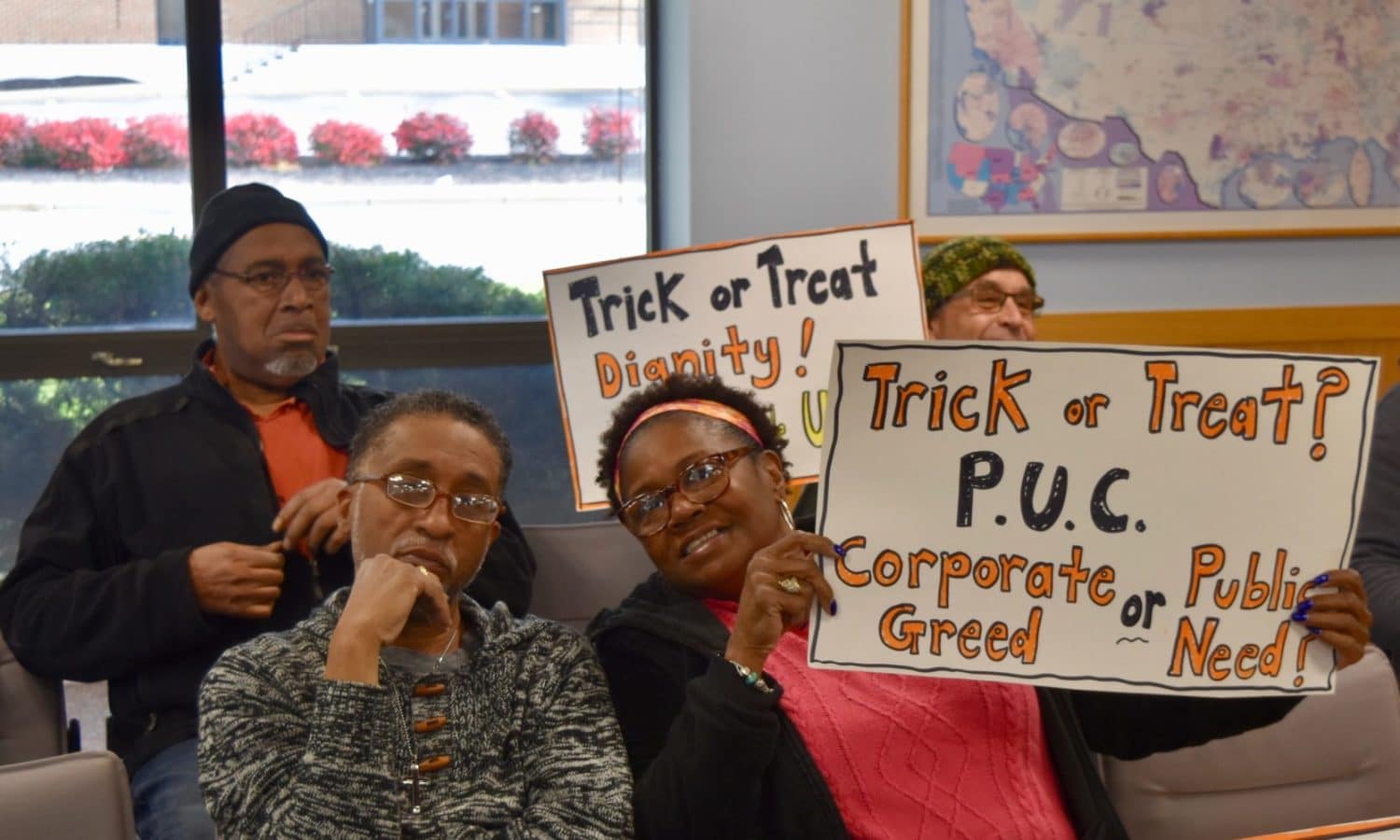
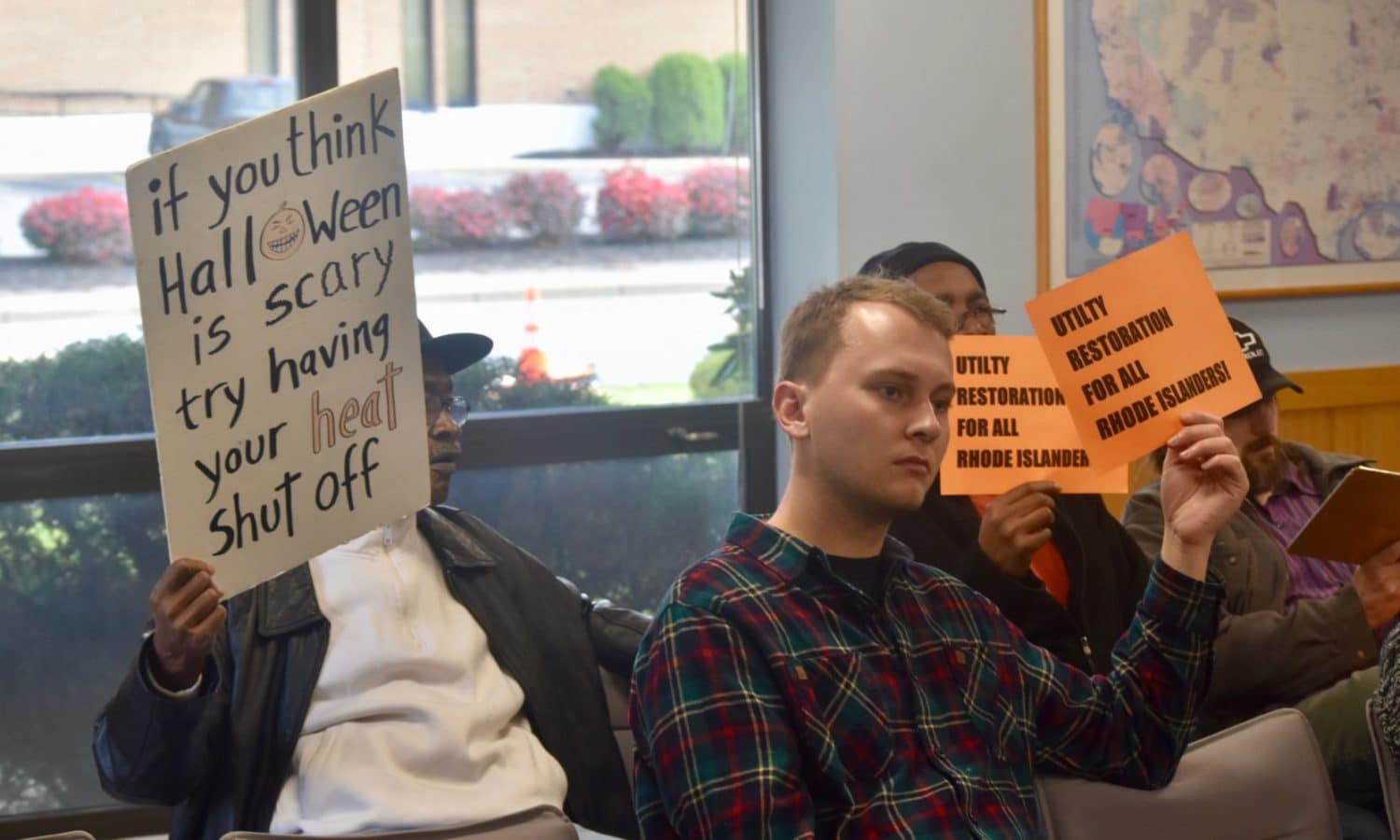
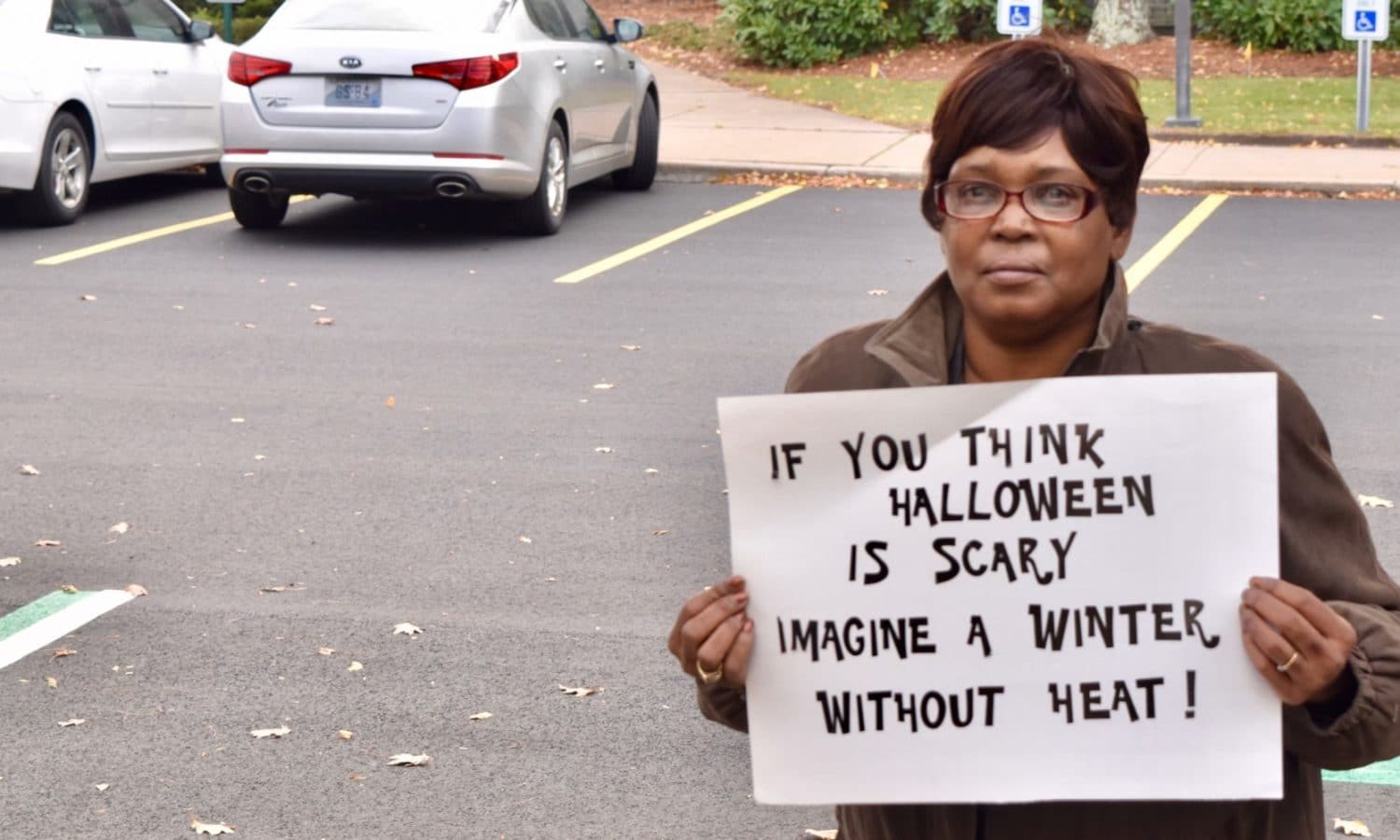
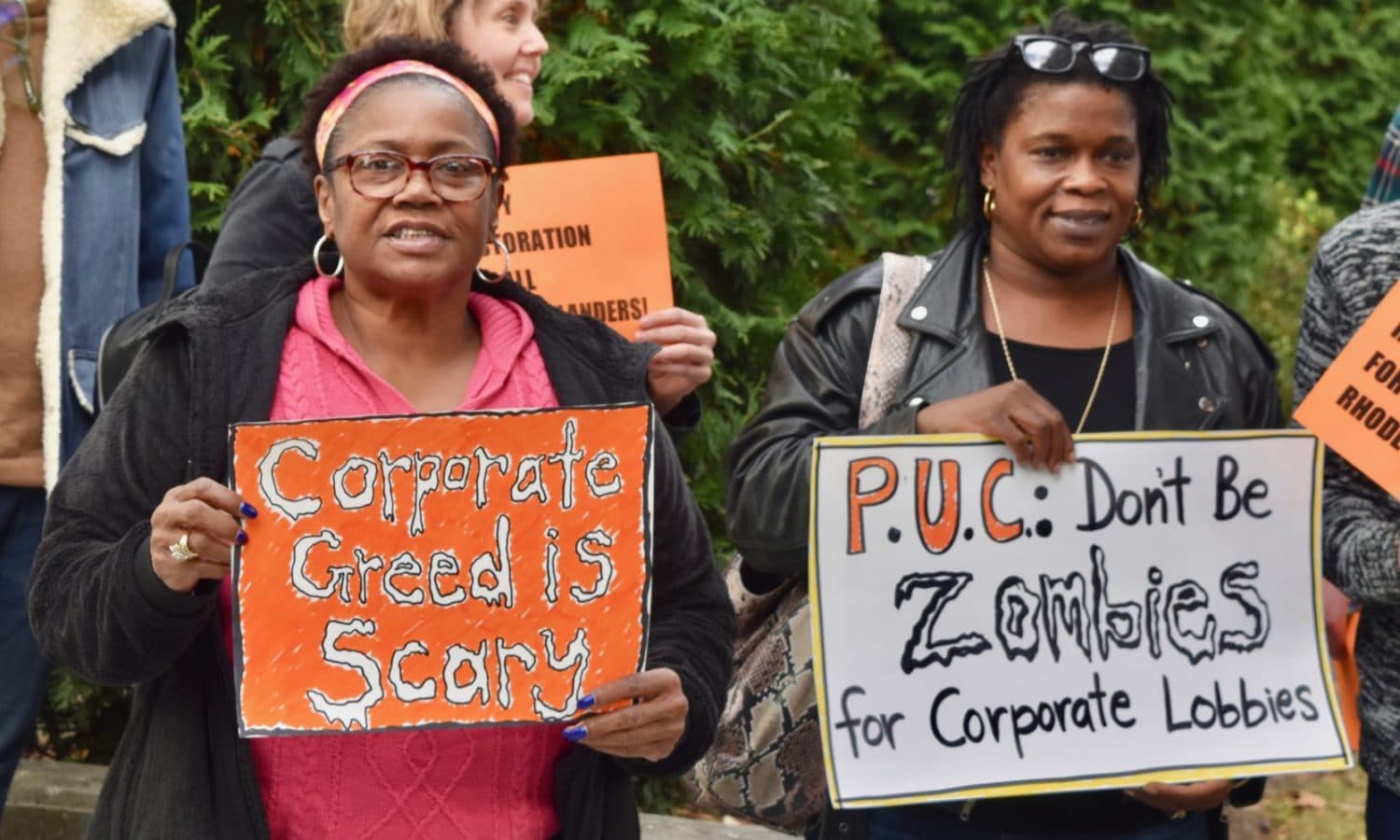
UpriseRI is entirely supported by donations and advertising. Every little bit helps:
![]()



